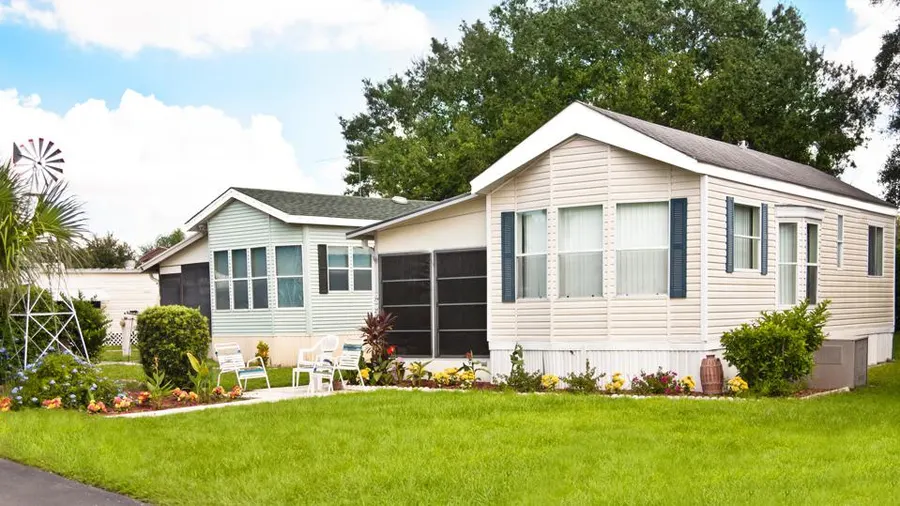Collateral plays a significant role in personal finance and borrowing. Lenders often require collateral to secure a loan, assuring that if the borrower defaults, the lender can seize the collateral to recover their losses. While traditional forms of collateral like real estate or vehicles are commonly accepted, a question arises: Can you use a mobile home as collateral for a loan? This article delves into the intricacies of using a mobile home as collateral, exploring the possibilities, advantages, and considerations involved.
Understanding Mobile Homes
Firstly, let’s clarify what a mobile home is. Mobile homes, also known as manufactured homes, are prefabricated dwellings built in a factory and then transported to a site for installation. They are distinct from modular homes, which are also built off-site but are assembled on-site in a more permanent manner.

Mobile homes can be placed on private land that you own or lease or in mobile home parks. They come in various sizes and configurations, ranging from single-wide units to larger double-wide or triple-wide units, and they can offer a more affordable housing option than traditional houses.
Using a Mobile Home as Collateral
Now, let’s explore whether you can use a mobile home as collateral for a loan. The answer is generally yes, but there are several factors to consider:
1. Loan Type
The type of loan you’re seeking will influence whether a mobile home can be used as collateral. For example:
- Mortgage Loan: If you own the land on which the mobile home is situated, you may be able to obtain a mortgage loan using the mobile home and land as collateral.
- Home Equity Loan or Line of Credit: If you have equity in your mobile home and the land it sits on, you might qualify for a home equity loan or line of credit.
- Personal Loan: Some lenders may accept a mobile home as collateral for a personal loan, although this can vary widely based on the lender’s policies and the value of the mobile home.
2. Title and Ownership
To use a mobile home as collateral, you must have clear ownership and possess the title or other documentation proving your ownership rights. Lenders will typically require this information to process a loan application.
3. Appraised Value
The appraised value of your mobile home and land will impact the money you can borrow. Lenders may require an appraisal to determine the value of the collateral.
4. Condition and Age
The condition and age of the mobile home can also affect its eligibility as collateral. Newer homes in good condition may be more desirable to lenders, as they are considered lower risk.
5. Lender Requirements
Each lender will have its requirements regarding using mobile homes as collateral. Some lenders may specialize in loans secured by mobile homes, while others may be more hesitant or have stricter criteria.
Advantages of Using a Mobile Home as Collateral
There are several potential advantages to using a mobile home as collateral for a loan:
- Access to Funds: By using your mobile home as collateral, you may qualify for a loan or line of credit that can provide you with needed funds for various purposes, such as home improvements, debt consolidation, or unexpected expenses.
- Lower Interest Rates: Secured loans often have lower interest rates than unsecured loans, which can save you money over time.
- Flexible Repayment Terms: When a loan is secured by collateral, lenders may offer more flexible repayment terms, making it easier to manage your payments.
Considerations and Risks
While using a mobile home as collateral can be advantageous, there are important considerations and risks to keep in mind:
- Risk of Loss: If you default on the loan, you could lose your mobile home if it’s used as collateral. This risk underscores the importance of borrowing responsibly and ensuring you can afford the loan payments.
- Value Fluctuations: The value of mobile homes can fluctuate based on various factors, including market conditions and the home’s condition. This can impact the money you can borrow and the loan terms.
- Lender Requirements: Not all lenders accept mobile homes as collateral, so you may need to shop around to find a lender willing to work with you based on your specific situation.
- Legal and Regulatory Considerations: There may be legal and regulatory considerations involved in using a mobile home as collateral, such as zoning laws, local regulations, and loan disclosure requirements. It’s important to understand these factors before proceeding.
Conclusion
In conclusion, using a mobile home as collateral for a loan is possible, but it comes with various considerations and risks. Before pursuing this option, it’s crucial to assess your financial situation, understand the terms and conditions of the loan, and explore alternative financing options if necessary. By being informed and proactive, you can make sound financial decisions regarding using your mobile home as collateral.
See Also:
- Understanding the Importance of Income Verification in Sarasota, Florida Mobile Home Parks
- Why You Should Get an Inspection on Your Sarasota, Florida Mobile Home Before Buying
- How Can You Buy a Sarasota, Florida Mobile Home Online
- Understanding the Cost of Mobile Homes in Florida in 2024
- Choosing The Right AC Size For Your Mobile Home


Hi I own a lodge on a holiday park. Its value is £100,000 and I would like to borrow against it.
I have poor credit but own this outright with no mortgage
I want to borrow £10000
Can you help
I have mobile home in Tampa florida own it out right on leased land its worth about 120k ..but have bad credit can i get a loan?